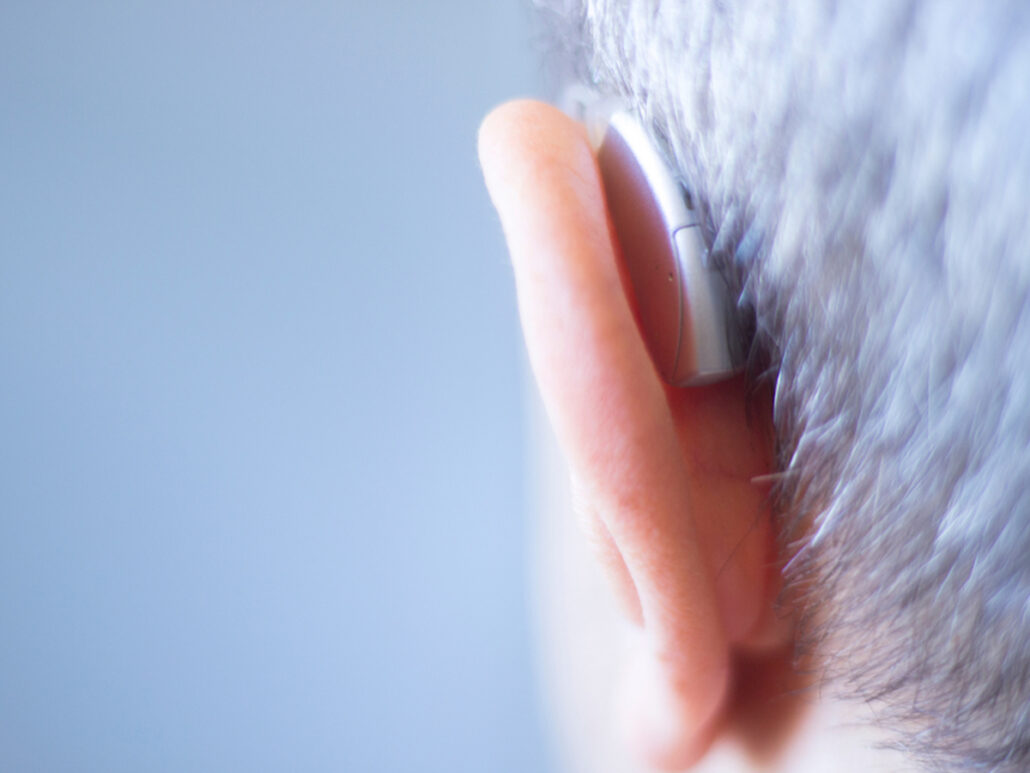Hearing loss affects approximately 37.5 million people in the United States. For those who experience it, finding a solution that can improve their hearing and overall quality of life is essential. One such solution is the use of hearing aids, and among the top brands in the industry is Oticon. In this article, we will explore the revolutionary technology of Oticon Hearing Aids, how they work, and the benefits they offer to users.

What are Oticon Hearing Aids?
Oticon is a global leader in the hearing aid industry, with a long-standing reputation for innovation and quality. Founded in 1904 by Hans Demant, Oticon has been at the forefront of hearing aid technology for over a century. Today, the company continues to develop cutting-edge solutions to help people with hearing loss lead fuller, more active lives.
Oticon hearing aids are advanced devices designed to improve hearing by amplifying sounds and delivering them to the user’s ears. They are known for their innovative features, such as the BrainHearing™ technology, which focuses on supporting the brain’s natural ability to process sounds.
With a range of models and styles available, Oticon hearing aids cater to various degrees of hearing loss and individual preferences. Some popular hearing aid models include the Oticon More Hearing Aids and Oticon Real Hearing Aids.
How Do Oticon Hearing Aids Work?
An Oticon hearing device captures, processes, and amplifies sounds before delivering them to the user’s ears. It has several essential components, including a microphone, a digital signal processor, an amplifier, and a speaker or receiver.
Microphone: The microphone captures sounds from the environment and converts them into electrical signals.
Digital Signal Processor: The digital signal processor (DSP) analyzes the electrical signals, filtering out background noise and focusing on the sounds that the user wants to hear. The DSP also adjusts the frequency and volume of the sounds based on the user’s specific hearing loss profile.
Amplifier: The amplifier increases the volume of the processed sounds to a level that the user can comfortably hear.
Speaker/Receiver: The speaker or receiver converts the amplified electrical signals back into sound waves and delivers them to the user’s ears.
Oticon’s BrainHearing™ technology is critical to the performance of its hearing aids. This technology focuses on supporting the brain’s natural ability to process sounds, allowing users to understand speech even in noisy situations. By providing a more natural listening experience, Oticon hearing aids help reduce listening effort and improve overall hearing satisfaction.
Benefits of Oticon Hearing Aids
Oticon hearing aids offer numerous benefits to users, making them a popular choice over other hearing aids. Some of the key benefits include:
- Improved speech understanding: Oticon Hearing Aids are designed to enhance speech clarity, making it easier for users to understand conversations in various environments. The BrainHearing™ technology helps the brain process speech sounds more effectively, resulting in better comprehension and reduced listening effort.
- Better sound quality: With advanced sound processing capabilities, Oticon Hearing Aids deliver a more natural and balanced sound quality, allowing users to enjoy their favorite music, movies, and other audio experiences.
- Adaptability to different environments: Oticon Hearing Aids automatically adjust to different listening environments, ensuring optimal performance in various situations, such as quiet conversations at home, busy restaurants, or outdoor events.
- Discreet design: Oticon offers a wide range of hearing aid styles, including behind-the-ear (BTE), in-the-ear (ITE), and invisible-in-canal (IIC) models, allowing hearing aid users to choose a discreet and comfortable option that suits their preferences.
- Wireless connectivity: Many Oticon hearing aids are compatible with wireless accessories, such as remote controls and smartphone apps, allowing users to adjust settings easily and stream audio directly to their hearing aids.
Who Can Benefit from Oticon Hearing Aids?

Oticon hearing aids are suitable for individuals with various degrees of hearing loss, ranging from mild to profound. They can benefit people of all ages, including children, adults, and seniors. Some common situations where Oticon Hearing Aids may be helpful include:
- Difficulty understanding speech in noisy environments, such as restaurants or social gatherings
- Struggling to hear conversations on the phone or watching television
- Experiencing ringing or buzzing in the ears (tinnitus)
- A family history of hearing loss or a recent diagnosis of hearing loss
Consulting with a hearing care professional is essential to determine if Oticon Hearing Aids is the right solution for your hearing needs.
What Features Does Oticon Hearing Aids Offer?
Oticon hearing devices come with a variety of advanced features designed to improve users’ hearing experience. Below are some notable hearing aid features:
BrainHearing™ technology: As mentioned earlier, this technology focuses on supporting the brain’s natural ability to process sounds, resulting in better speech understanding and reduced listening effort.
OpenSound Navigator™: This feature helps users better understand speech by reducing background noise and providing a more balanced listening experience in various environments.
Spatial Sound™: This technology helps users identify the direction of sounds, improving their ability to locate and separate different sound sources.
Tinnitus SoundSupport™: For those experiencing tinnitus, this feature offers customizable relief sounds to help manage the condition.
Rechargeable styles: Oticon offers rechargeable hearing aids, able to provide users with a full day of battery life with only three hours of charge time.
What Are the Different Types of Oticon Hearing Aids?
Oticon hearing aid styles cater to different preferences and hearing loss levels. Some of the popular styles include:
Behind-the-Ear (BTE): BTE hearing aids tuck neatly behind the ear and are connected to a custom earmold or dome that fits in the ear canal. They are suitable for mild to profound hearing loss and are available in various colors and sizes.
In-the-Ear (ITE): ITE hearing aids are custom-made to fit the user’s ear and sit in the outer portion of the ear canal. They are suitable for mild to severe hearing loss and offer a discreet and comfortable option.
Invisible-in-Canal (IIC): IIC hearing aids are the smallest and most discreet style, as they sit deep in the ear canal and act as invisible hearing aids. They are suitable for mild to moderate hearing loss.
Receiver-in-Canal (RIC): RIC hearing aids have a small, discreet housing behind the ear, with a thin wire connecting to a receiver in the ear canal. They are suitable for mild to severe hearing loss and provide a more natural sound quality.
How Much Do Oticon Hearing Aids Cost?
Oticon hearing aid prices can vary depending on the specific model, features, and style.
Some insurance plans may cover part or all of the cost of hearing aids, and financing options may be available through your hearing care provider. Additionally, some states or non-profit organizations offer financial assistance programs for eligible individuals to help cover the cost of hearing aids.
Where Can I Get Oticon Hearing Aids?
Oticon hearing aids are available through authorized hearing care providers, such as audiologists and ENT (ear, nose, and throat) specialists. Penn Medicine Becker ENT & Allergy provides comprehensive hearing care, evaluating patients’ hearing needs, recommending the appropriate Oticon Hearing Aid, and providing fitting and follow-up care.
How to Choose the Right Oticon Hearing Aid for You
When selecting the right Oticon hearing aid, you’ll want to consider the degree of your hearing loss, lifestyle, preferences, and budget.
After identifying the cause and degree of your hearing loss, the audiologists at Penn Medicine Becker ENT & Allergy will work with you to select hearing devices that are appropriate and desirable for your specific needs and lifestyle. Our patients have the opportunity to test hearing aids in a variety of listening situations to help them make informed decisions.
After purchasing your Oticon hearing aid, schedule regular follow-up appointments to monitor your progress and make any necessary adjustments to the device.
Schedule an appointment with an Audiologist!
If you or someone you know is suffering from hearing loss, contact an experienced audiologist to learn more about hearing aids. Oticon creates essential hearing aids that are more discreet and efficient than ever before, with a wide range of functions and options to fit any lifestyle. Penn Medicine Becker ENT & Allergy can help you find the right Oticon hearing aid to improve your hearing and overall quality of life. Schedule an appointment with our experts today.

